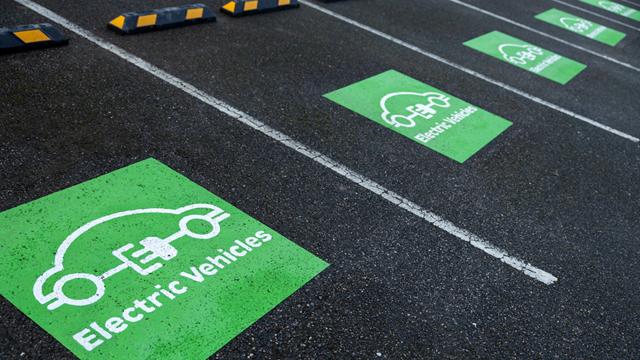sgregory124
MB Enthusiast
Great news and it seems, driven by the Germans: Net zero ban on petrol cars in chaos after Brussels climbdown.
Follow along with the video below to see how to install our site as a web app on your home screen.
Note: This feature may not be available in some browsers.
/cloudfront-us-east-2.images.arcpublishing.com/reuters/D7IERA5C5NOVPLFPRRS6CXYX2U.jpg)

Great news and it seems, driven by the Germans: Net zero ban on petrol cars in chaos after Brussels climbdown.
Over time it’ll get cheaper - Ferrari seem to believe so anyway (according to the article).Unfortunately its likely to be very expensive for the average car owner.Its advantages are likely to be in applications requiring fuels with a high energy density such as aviation.
Like to bet on that.....If so why? I cant see it being delayed one moment. We have the electricity, we are getting the infrastructure, at current rate of take up and allowing for predicted sales of EVs there will be no more than about 25% of car on UK roads that are pure EV by 2030....its just a continuation of what is happening now....a slow switch over. Hate them myself and I will NEVER buy one.....but its happening gents....Don't forget that most people in the UK are not petrol heads like us and really could not care less what their cars are powered by.....sad but true. According to the National Grid if we all went EV tomorrow they could cope with demand....see below.I love EU deadlines.
It's that whooshing noise they make as they fly by.
The UK will climb on the bandwagon shortly and push back that 2030 deadline for sure

But it won’t happen, the current ‘government’ are utterly incompetent. They are simply incapable of doing anything properly, on-time, on budget, without lying, cheating etc.Like to bet on that.....If so why? I cant see it being delayed one moment. We have the electricity, we are getting the infrastructure, at current rate of take up and allowing for predicted sales of EVs there will be no more than about 25% of car on UK roads that are pure EV by 2030....its just a continuation of what is happening now....a slow switch over. Hate them myself and I will NEVER buy one.....but its happening gents....Don't forget that most people in the UK are not petrol heads like us and really could not care less what their cars are powered by.....sad but true. According to the National Grid if we all went EV tomorrow they could cope with demand....see below.

Busting the myths and misconceptions about electric vehicles | National Grid Group
Can the electricity grid cope with more EVs? And what really happens to old EV batteries? Find out the answer to these and many more questions about electric vehicles in our comprehensive EV myth-buster.www.nationalgrid.com
Like to bet on that.....If so why? I cant see it being delayed one moment. We have the electricity, we are getting the infrastructure, at current rate of take up and allowing for predicted sales of EVs there will be no more than about 25% of car on UK roads that are pure EV by 2030....its just a continuation of what is happening now....a slow switch over. Hate them myself and I will NEVER buy one.....but its happening gents....Don't forget that most people in the UK are not petrol heads like us and really could not care less what their cars are powered by.....sad but true. According to the National Grid if we all went EV tomorrow they could cope with demand....see below.

Busting the myths and misconceptions about electric vehicles | National Grid Group
Can the electricity grid cope with more EVs? And what really happens to old EV batteries? Find out the answer to these and many more questions about electric vehicles in our comprehensive EV myth-buster.www.nationalgrid.com
ICE has a lower environmental footprint than EV and - especially when freed of onerous emissions kit (see below) easier to maintain extending life and better amortising the production emissions.All cars - EVs & ICE - have a massive environmental footprint regardless of their means of propulsion.
Re above - and following on from another thread conversation - true, up until the point (if it is ever reached) where we have an abundance of renewably generated electricity. If that is achieved then life as we know it can continue as it is. Seeing (in Grober's linked article) that E-fuels require five times the electricity that an EV gets around on is a steep hill to climb for ICE to survive.But looking at this dispassionately, there is no way that all the plant's adult inhabitants can have cars and drive them everywhere, all the time - it's an extinction event in the making.
Yes.Like to bet on that.....
ICE has a lower environmental footprint than EV and - especially when freed of onerous emissions kit (see below) easier to maintain extending life and better amortising the production emissions.
No calculation necessary. ICE is easy, and has an abundance of people well versed in how to. The same cannot be said for EV maintenance/repair which is dependent on OEM training and equipment (think STAR and multiply by 1000) and will not freely disseminate. (I had engines apart and back together before I was in my teens. Show me the kid that can rebuild an invertor - or be allowed anywhere near one).I don't think that anyone has actually done this calculation while taking into account all the relevant factors.
When we are no longer chasing the last fraction of a percent of CO2 reduction the engine and transmissions can be simpler, cheaper, less reliant on expensive materials and production processes. They can also be less reliant on electronic modules which fail at whim and which are only replaceable in a short timeframe before being discontinued or absurdly priced (£1700 for a ABS/ESP ECU for a humble smart fortwo) - built in obsolescence.But ICE cars have engines and transmissions, made of metal, that need to be manufactured using precision machinery, and that machinery also needs to be manufactured, and replaced from time to time.... plus, building engines and transmissions is a labour-intensive task,
Either there's a productive economy - or there isn't. There will be employees travelling to and from a work place building ICE, EV, stuffed toys, etc, etc.and then you have to also consider the footprint of the employees driving to work every day etc.
EVs will still have disposable consumables - the battery being the biggie - unless and until such time as meaningful recycling exists. ICE waste pales next to household waste in any case.And, ICE cars need every now and then new engine oil and transmission ATF, and fuel and air filters, that - again - need to be made - and then often end-up in landfills (not every country around the world has strict laws about recycling used automotive service products). Not to mention brake discs and pads - and the factories that make them - and the employees that work in these factories - etc etc.
We know the challenges ICE poses and many can be addressed. EVs are less of a known quantity. Already there are concerns that their lifespan will be wastefully lower than ICE and the recycling of batteries is not yet a fact.I am not suggesting that I know what the answer is, just to say that there's a tendency to point a finger at EVs' batteries and weight, while the reality is actually more complicated than that (and possibly too complicated to come up with a reliable calculation).
Jeep were laughed at several years ago when it made the environmental case for its vehicles based on the use of low tech materials, simple production processes, and long (decades) working life. How many overly complicated diesels have to be prematurely scrapped for Jeep's claim to be taken seriously? How many EV's being scrapped at eight years old (with or without battery recycling) before we realise Jeep may have been heading down the right path? If they (Jeeps) had been running on CO2 neutral fuels they would absolutely have been right.Either way - it's probably a case of six of one, half a dozen of the other.
Leave the worms and instead develop the can that can contain hydrogen. Good luck with that!I'd like to open a new can or worms and predict that EV's are just a stop gap before hyrdogen power is the norm
Leave the worms and instead develop the can that can contain hydrogen. Good luck with that!
No calculation necessary. ICE is easy, and has an abundance of people well versed in how to. The same cannot be said for EV maintenance/repair which is dependent on OEM training and equipment (think STAR and multiply by 1000) and will not freely disseminate. (I had engines apart and back together before I was in my teens. Show me the kid that can rebuild an invertor - or be allowed anywhere near one).
When we are no longer chasing the last fraction of a percent of CO2 reduction the engine and transmissions can be simpler, cheaper, less reliant on expensive materials and production processes. They can also be less reliant on electronic modules which fail at whim and which are only replaceable in a short timeframe before being discontinued or absurdly priced (£1700 for a ABS/ESP ECU for a humble smart fortwo) - built in obsolescence.
Either there's a productive economy - or there isn't. There will be employees travelling to and from a work place building ICE, EV, stuffed toys, etc, etc.
EVs will still have disposable consumables - the battery being the biggie - unless and until such time as meaningful recycling exists. ICE waste pales next to household waste in any case.
We know the challenges ICE poses and many can be addressed. EVs are less of a known quantity. Already there are concerns that their lifespan will be wastefully lower than ICE and the recycling of batteries is not yet a fact.
Jeep were laughed at several years ago when it made the environmental case for its vehicles based on the use of low tech materials, simple production processes, and long (decades) working life. How many overly complicated diesels have to be prematurely scrapped for Jeep's claim to be taken seriously? How many EV's being scrapped at eight years old (with or without battery recycling) before we realise Jeep may have been heading down the right path? If they (Jeeps) had been running on CO2 neutral fuels they would absolutely have been right.

We use essential cookies to make this site work, and optional cookies to enhance your experience.
